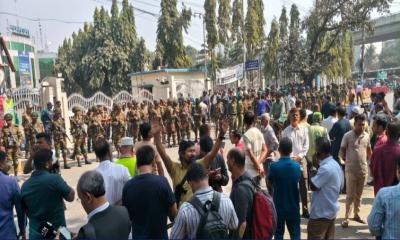The grand festival of five-day Sharadiya Durga Puja will come to an end tonight with celebrations of Sindur Khela in day
time, immersion of idols in the evening at nearby rivers or ponds and exchanging Bijaya greetings among devotees across the country.
Temples across the country including Dhakeshwari National temple, Ramna Kali Temple, Siddheswari Kalimandir are now seeing massive gathering of female devotees clad in colorful dresses including white saree with red borders and they are performing Sindur khela, a significant part of Bijoya Dashami celebrations. Males also join this ritual nowadays with giving colors to faces of other devotees or participants.
Sindur Khela, literally meaning `vermillion game`, is a Hindu tradition of East India and Bangladesh where women smear each other with sindur on Bijaya Dashami, the last day of the Durga Puja.
On the day of after the conclusion of the ritual worship, married Hindu women apply sindur on the forehead and feet of the goddess and offer sweets to her.
Then they put sindur on each other`s faces and offer sweets to each other, said Mahanagar Sarbajanin Puja Committee President Monindra Kumar Nath.
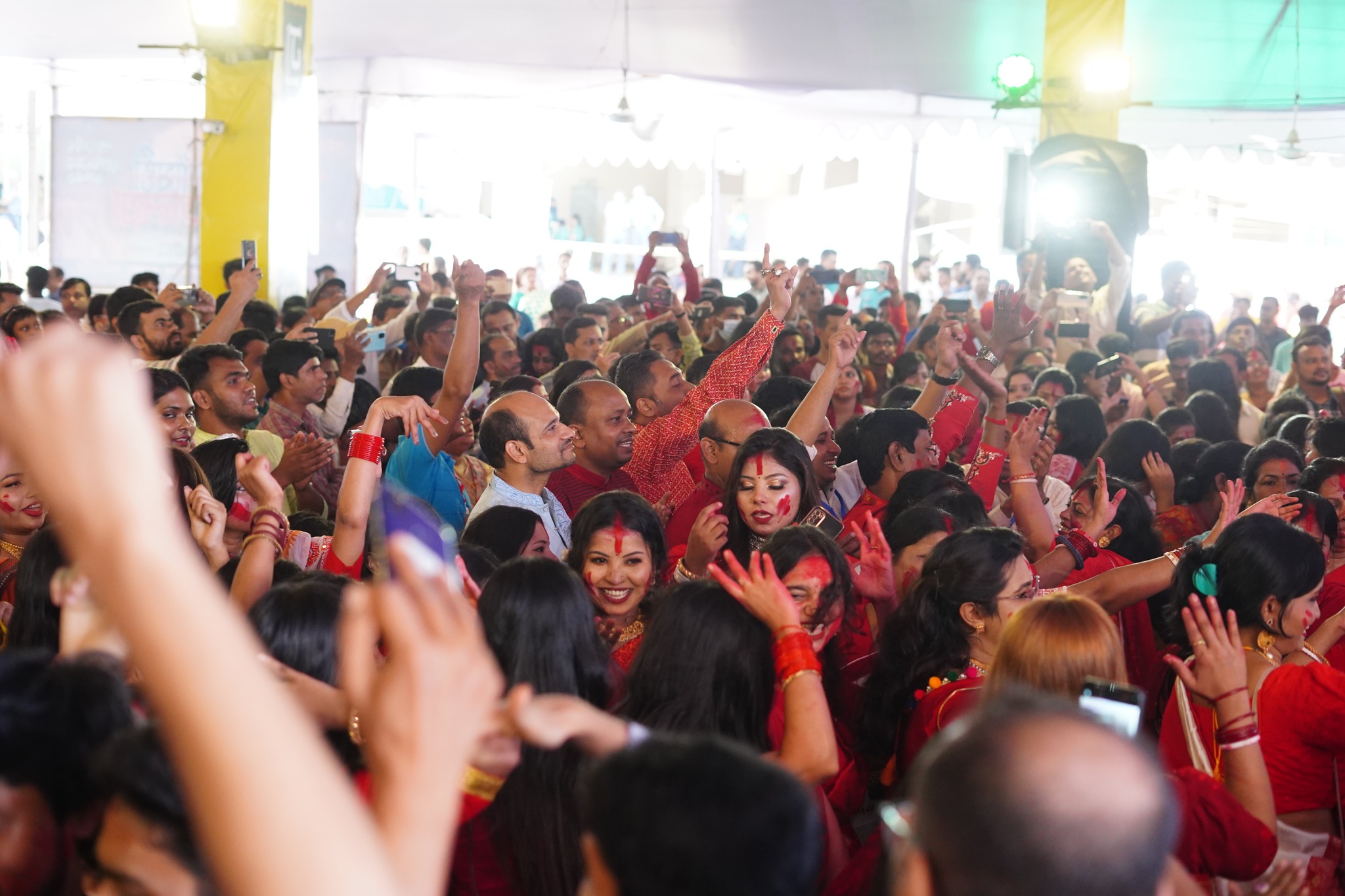
In the morning, Dashami puja was offered at temples and makeshift mandaps while Darpan Bisarjan will also be held before immersion of idols.
Darpan Bisarjan ceremony conducted on Bijaya Dashami day is the "real immersion" as it is beloved that the divinity that had been breathed into the
Devi idol at installation, slowly leaves the idol, said purohit (priest) Sadhan Chakrabarty.
After the ritual, colourful processions to the riverside followed by Bisarjan or Niranjan of Devi idols are a spectacle to enjoy, he added.
Marking Dashami, colorful processions will be brought out from temples and makeshift puja mandaps and later Devi idols will be immersed in nearby rivers, ponds or water-bodies.
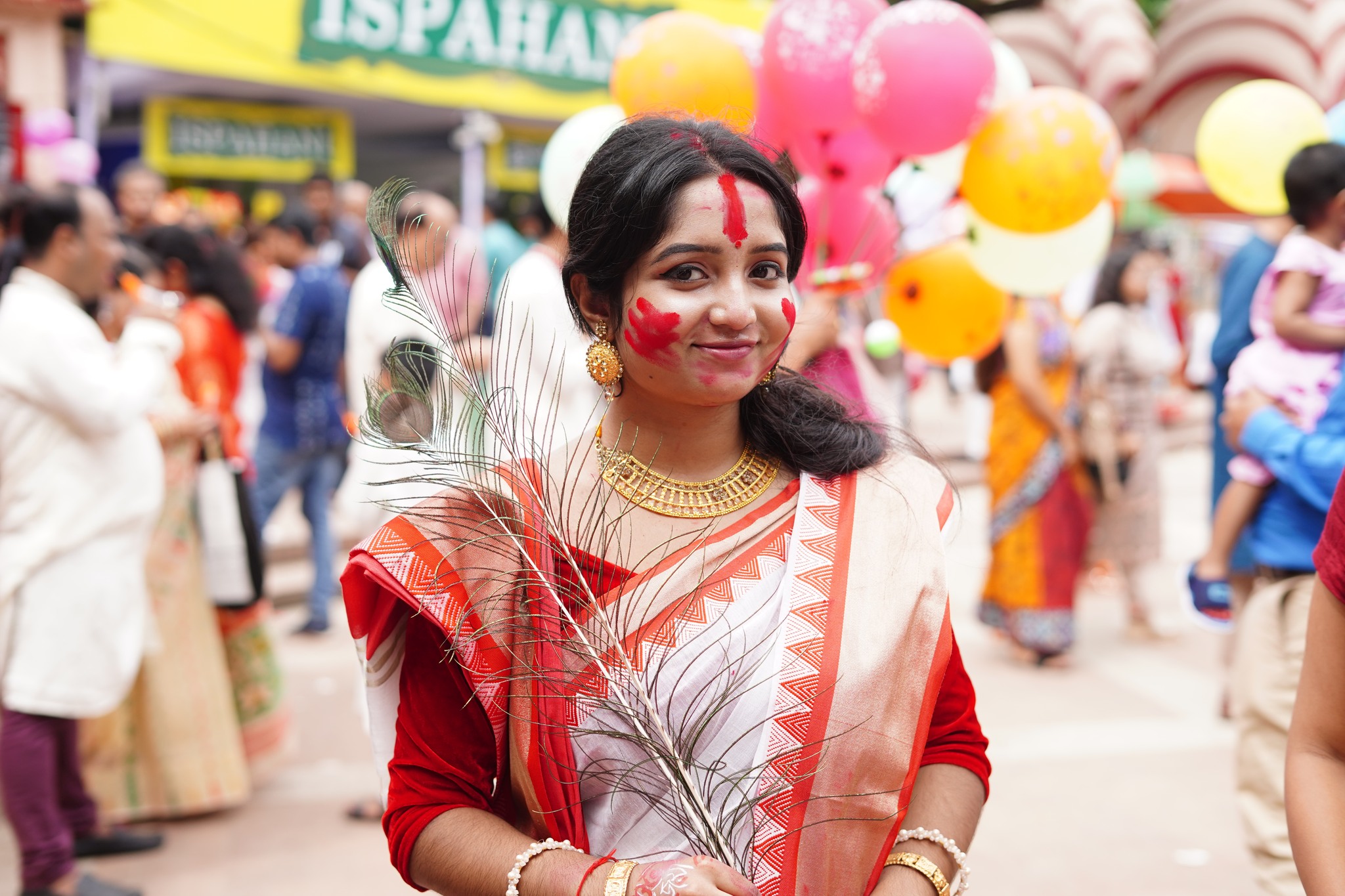
Bijaya Dashami is a bittersweet day as goddess Durga and her children are taken out of their earthly abode or the pandal for Bisarjan or immersion in
the river.
This indicates her return to Mount Kailash. Devotees often shout "Aschhe bochhor abar hobe" (Durga Puja will return next year again).
In the past, the idols were carried on bamboo structures. However, nowadays the idols are transported in trucks or pickup vans to riverbanks and then they are placed in a boat and taken to the middle of the river for immersion.
After immersion of idols, young members of the family touch the feet of the elders to seek blessings. Some hug each other (kolakuli). Sweets such as
chomchom, kalojam, sandesh, narkeler naru (mounds made of coconut and jaggery) are distributed on this day.
In the capital Dhaka, the main puja mandaps are at Dhakeshwari National Temple, Ramkrishna Mission and Math, Kalabagan, Banani, Shakhari Bazar and Ramna Kali Mandir.
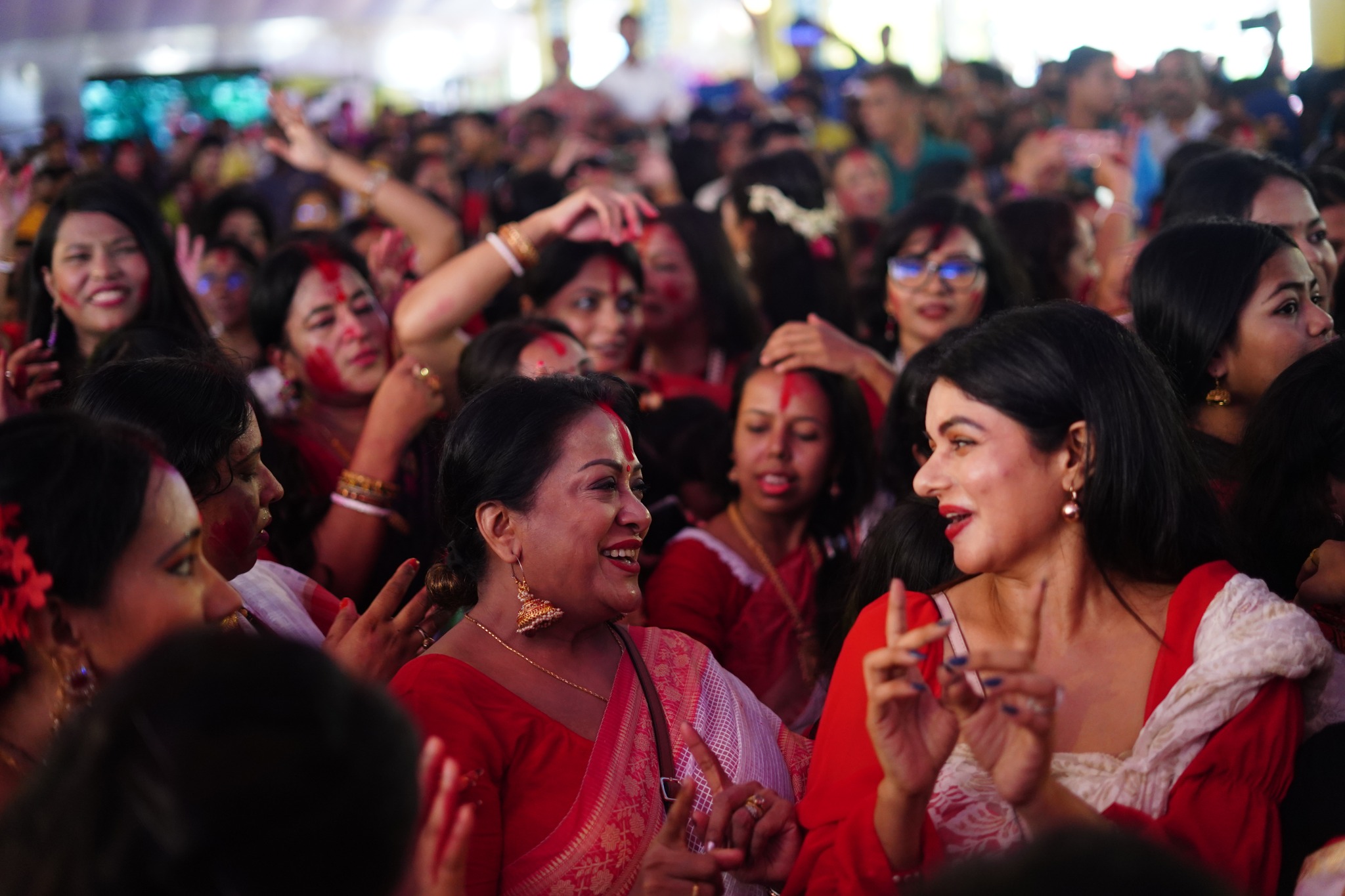
In major divisional cities including port city Chattogram, Narayanganj, Rajshahi, Khulna and Sylhet and district towns including Faridpur, Dinajpur,
Jashore, Kushtia, Netrakona, Tangail, Satkhira are also witnessing massive celebration of Durga Puja.
On Monday, Maha Navami, the fourth-day of Sharadiya Durga Puja, was celebrated with offering puja, anjali, daily bhog, sacrificing vegetables and
fruits and dhunuchi nach (dance competition).
On Navami, Goddess Durga is worship as Mahisasuramardini which means the Annihilator of the Buffalo Demon. It is believed that on Maha Navami day Goddess Durga killed the demon Mahishasura.
Maha Navami is the penultimate day of Navratri, and it is dedicated to worshipping the goddess Durga, who is believed to have manifested her full
divine power by this day. It is also the day when Durga is believed to have defeated the buffalo demon Mahishasura, symbolizing the triumph of good over evil.
Last night, temples and makeshift pandals saw massive gathering of devotees and visitors as Navami is the last night of Sharadiyo Navaratri or Sharadiya Durgotsab.
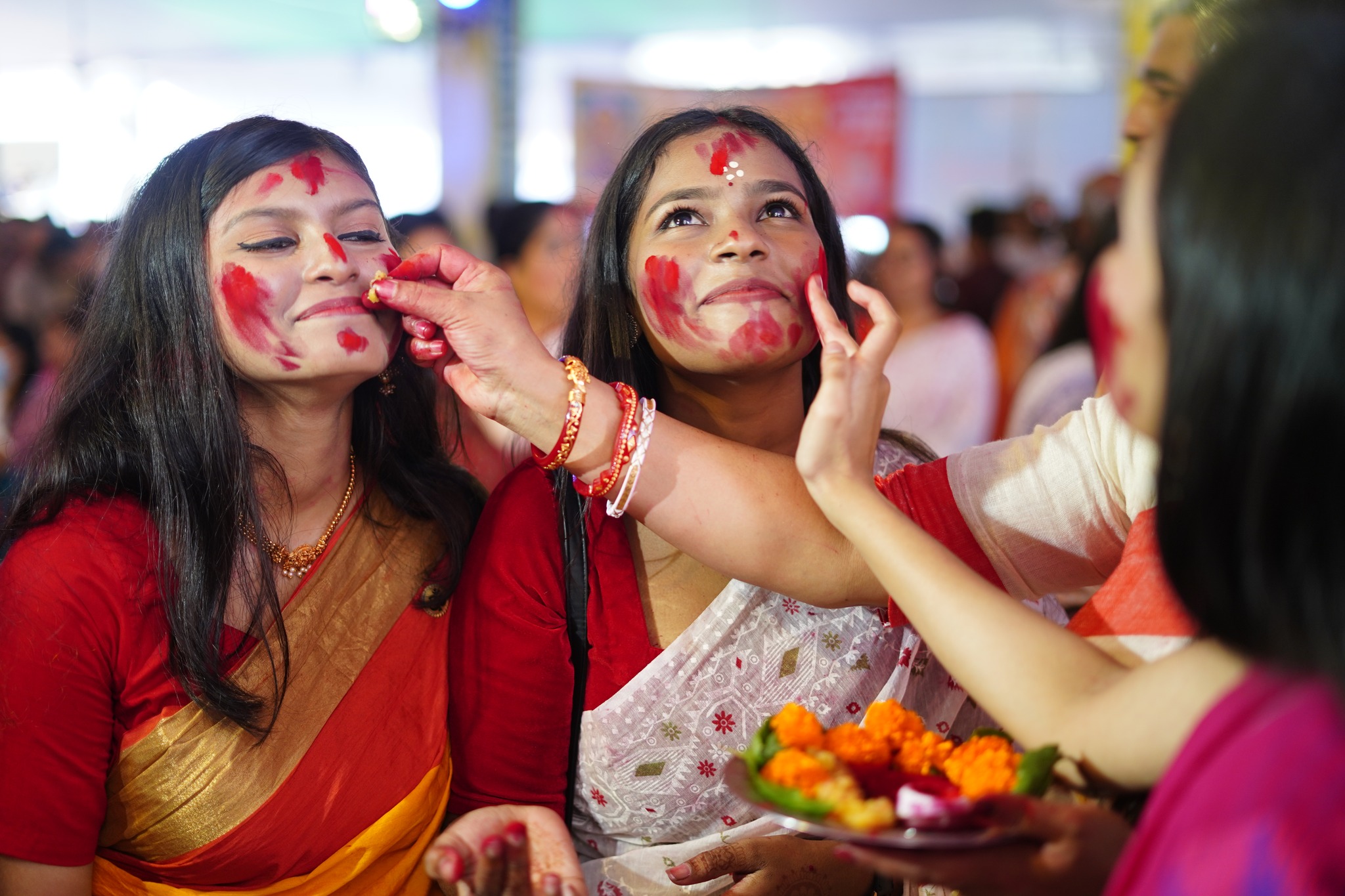
Navami Puja typically follows a specific sequence, involving the recitation of mantras and the offering of various items, such as fruits, sweets, incense
and lamps.
In different temples, animals are sacrificed on this day as an offering to the goddess.
Bali (Sacrifice) is an essential aspect of the puja as it invokes power, said a priest Sadhan Chakrabarty.
He said as the Hindus worship Goddess Durga, who is the embodiment of shakti (power), it is essential to incorporate bali in puja, but it does not have to be an animal, he said.
Earlier, people preferred animal sacrifice because of certain socio-economic reason, but now most of the temples and mandaps prefer to use vegetables or fruits in Bali, he added.
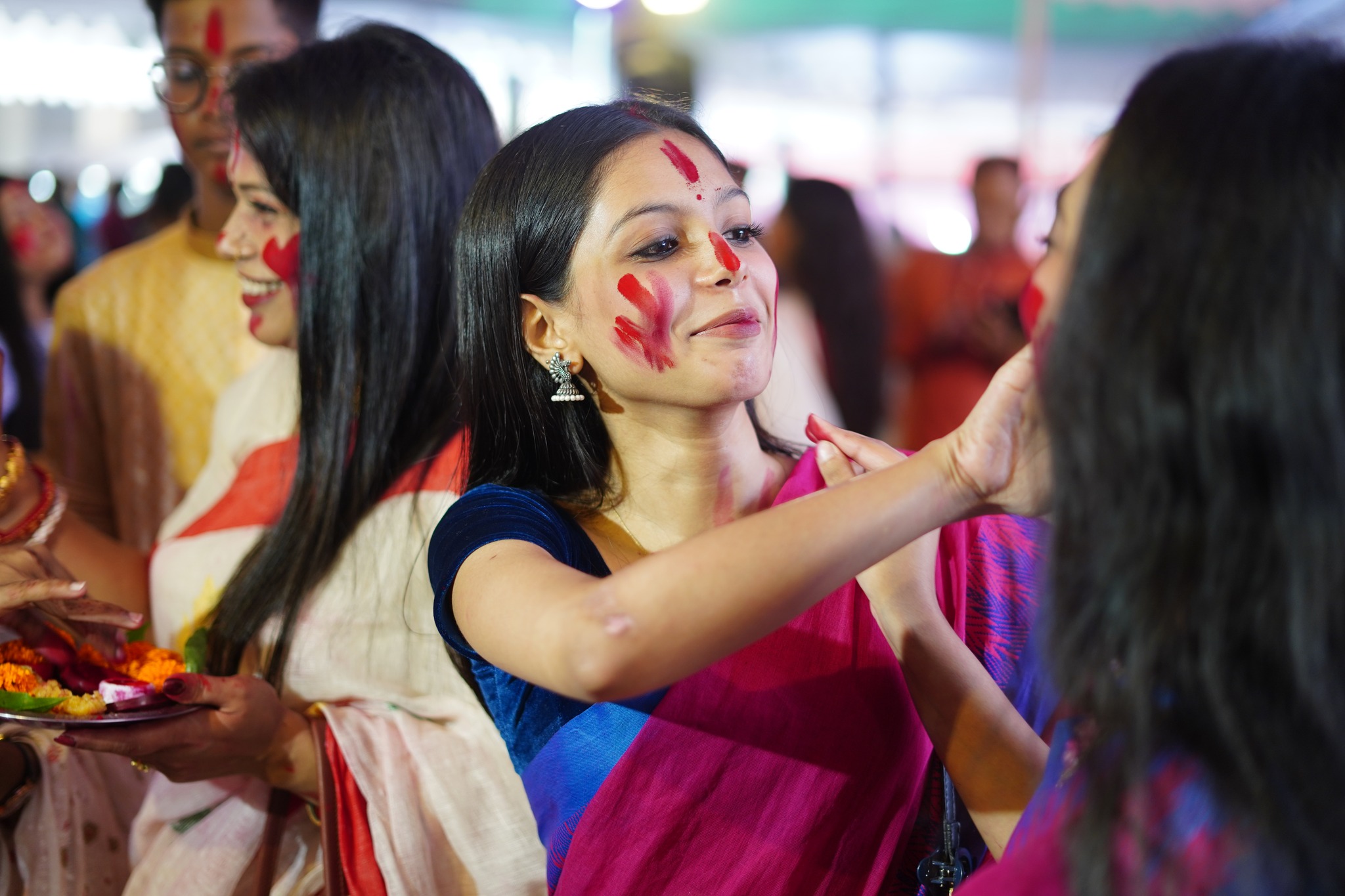
On Navami, Dunuchi Nach draws the special attraction as this is one of the most exciting rituals of the Durga Puja.
Clay pots are filled with smoking charcoal. Some people take the pot in their hands and start dancing.
The daredevils try to balance the clay pot on their heads. Some who wish to be even more adventurous attempt to hold the pot through their teeth!
Earlier, the dhunuchi nach was performed only by men.
However, nowadays women are also emerging as dhunuchi dance experts.
On Sunday, Maha Ashtami, the third day of five-day Sharadiyo Durga Puja, was celebrated amid different rituals including offering of Anjali, Kumari and Sandhi Puja at temples since morning.
In the morning, Goddess Durga was offered puja followed by offering anjali by devotees and distribution of prashad among them at temples and makeshift pandals across the country including the capital Dhaka.
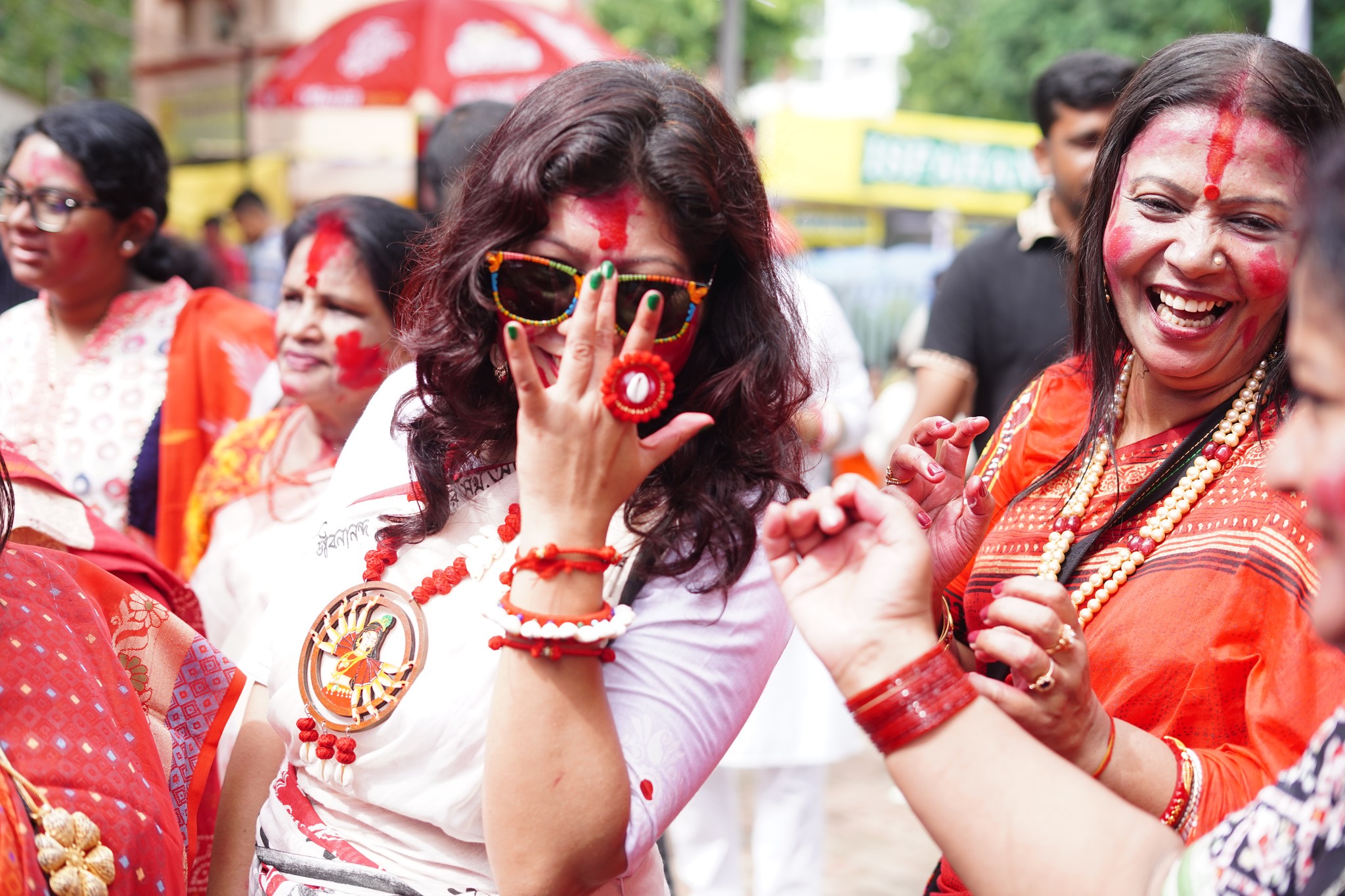
Kumari Puja, a special ritual of Durga Puja, was held at Ramkrishna Math and Ramkrishna Math, Dhaka this morning as five-year old Shatakkhi Goswami attired with traditional sharee was worshiped in the mould of Uma, said Premananda Maharaj of the mission.
During this puja, a prepubescent girl is worshiped as the living incarnation or avatar of Maa Durga. She is dressed in new clothes and floral ornaments. This ritual has its origins in the Hindu Puranas.
Kumari Puja was held in some traditional temples in Dhaka, Chattogram and other parts of the city.
Sandhi is a transition point between Ashtami and Nabami as the last 24 minutes of Ashtami and the first 24 minutes of Navami are known as `Sandhikkhon`, said Sadhan Chakrabarty.
According to the Puranas, this is an auspicious moment in time when Durga manifests into Chamunda. Chamunda is a fierce, indomitable entity, who
single-handedly defeated demon duo Sumbha and Nisumbha.
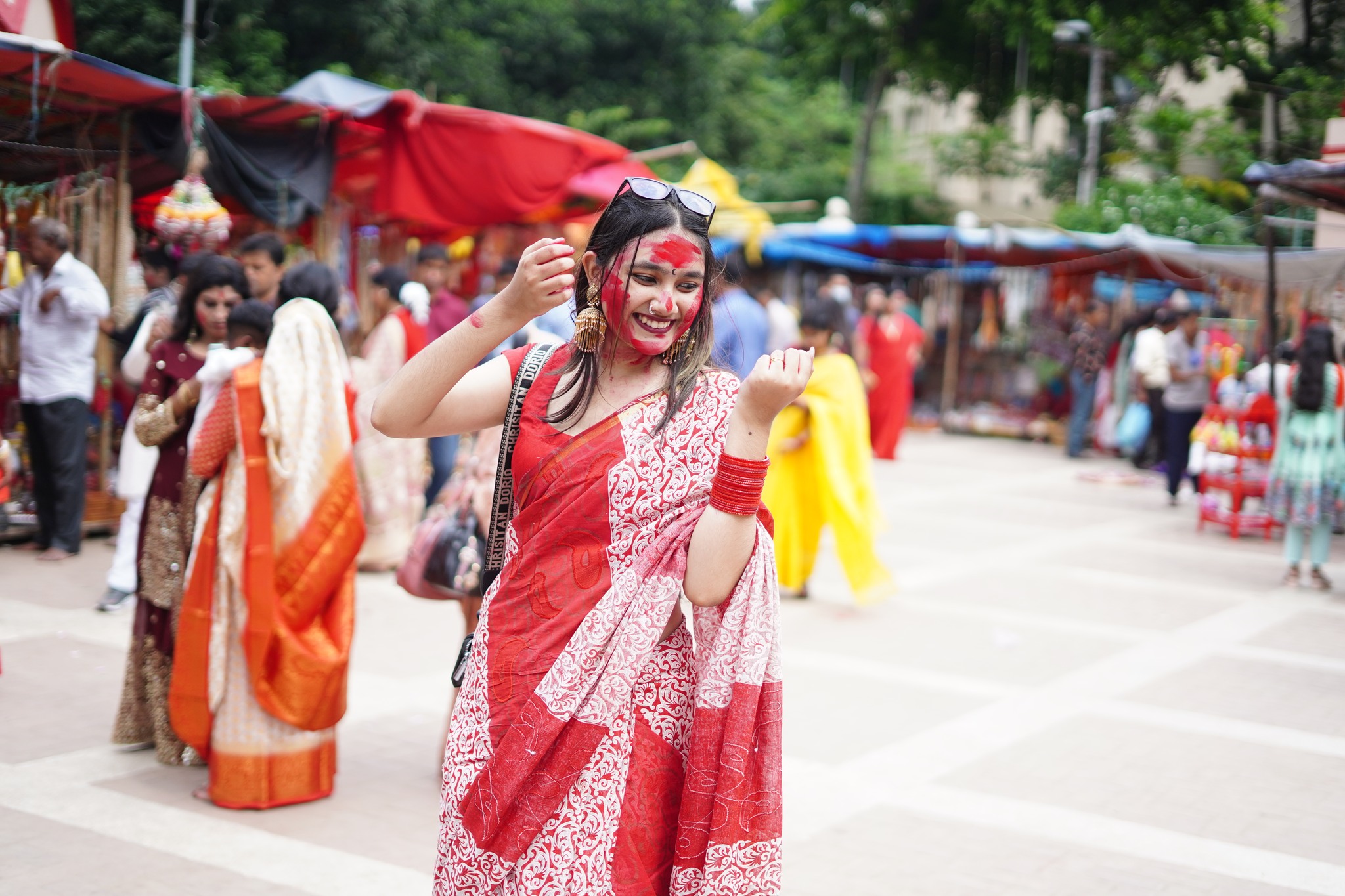
A total of 108 earthen lamps (pradip) are lit to celebrate this momentous occasion.
On Saturday, Maha Saptami, the second day of the five-day Sharadiya Durga Puja, was celebrated in befitting manner as temples and makeshift mandaps witnessed huge devotees and visitors while beautifully crafted idols of Goddess Durga was installed formally on the first day of Maha Shasthi on Friday.
Temples and mandaps have been illuminated and decorated gorgeously marking the puja as some puja pandals were portrayed in different themes signifying different aspects of life and religious stories.
Bangalee Hindus might have a plethora of festivals (baaro maaashe tero parbon or 13 festivals in 12 months) but Sharadiya Durgotsab remains the queen bee.
Durga Puja is being celebrated at 32,408 mandaps across the country this year including 245 in the capital, according to Bangladesh Puja Udjapan Parishad (BPUP).
BPUP General Secretary Prof Chandranath Poddar said the country saw Durga Puja celebration at 32,168 mandaps including 241 in the capital last year.
Stringent security measures have been taken across the country during the celebration of Durga Puja to avert any untoward situation.


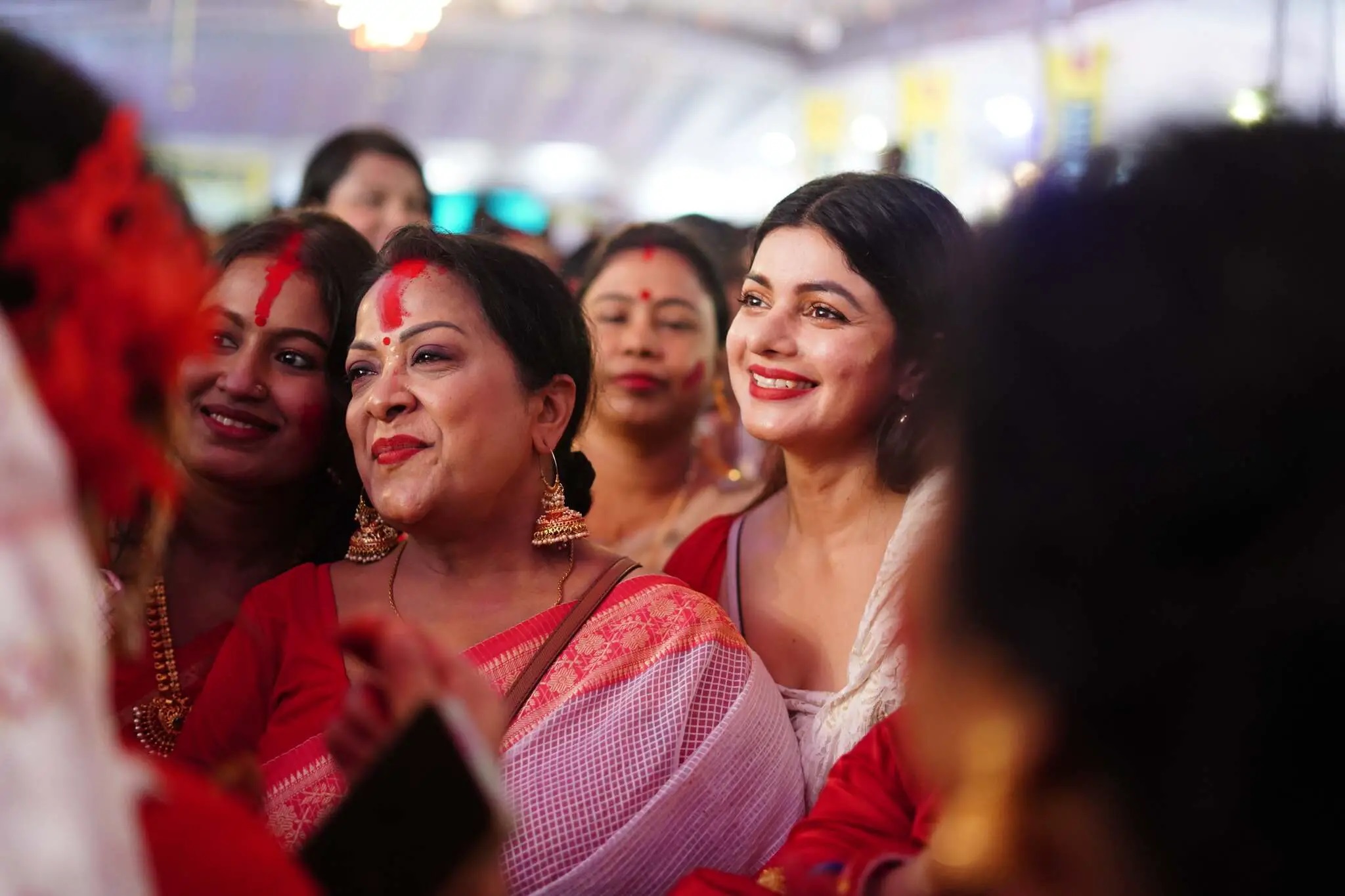




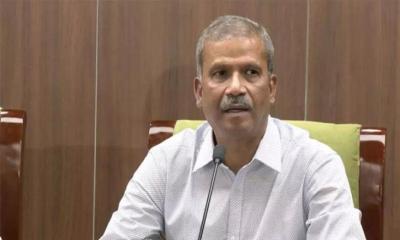
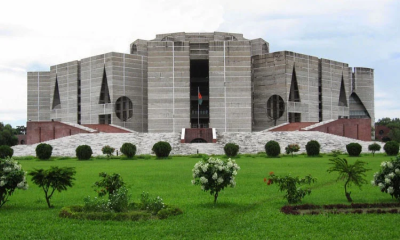


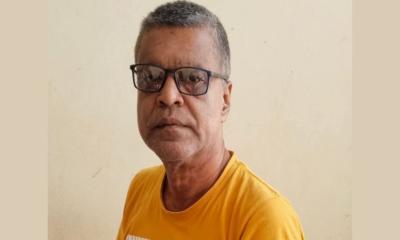
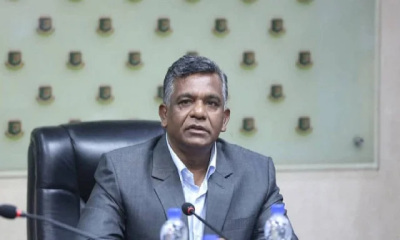



-20260215061522.webp)









